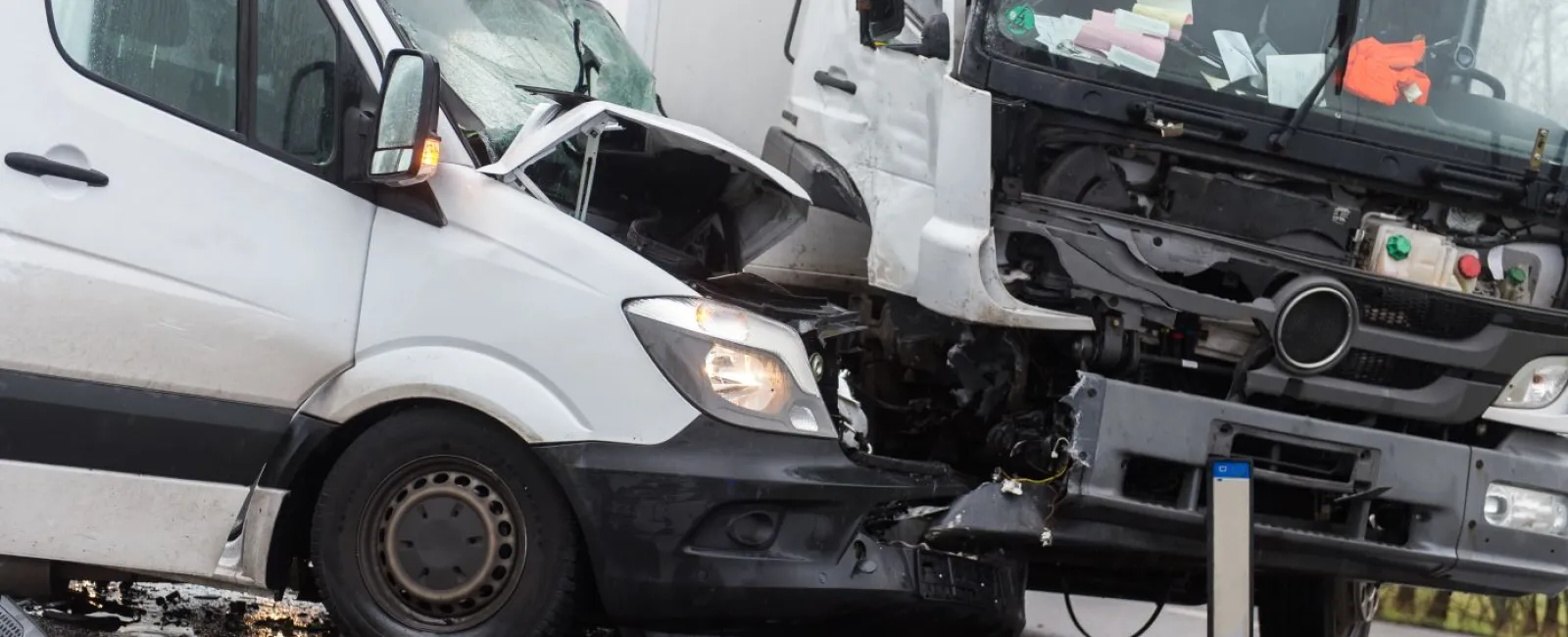Truck accidents can be devastating, leading to serious injuries, property damage, and emotional distress. When these accidents happen due to someone's negligence, victims may have the right to seek compensation through a lawsuit. Proving negligence in a truck accident case, however, requires a thorough approach and understanding of the legal requirements.
In Florida, like in other states, a victim must demonstrate that the truck driver or another party involved acted negligently, leading to the crash and the resulting damages. Proving negligence in a truck accident case involves identifying who was responsible for the accident, what they did wrong, and how their actions caused the victim's injuries.
The process can be complicated, and for that reason, it's crucial to have the guidance of a personal injury attorney who's well-versed in handling such cases. At the Fenderson Law Firm, we can help you explore the key components involved in proving negligence and how victims can strengthen their case to secure a favorable outcome.
Key Elements of Negligence in Truck Accidents
To prove negligence in a truck accident lawsuit, certain elements must be established. Negligence generally refers to the failure to exercise reasonable care, which leads to harm. In Florida, as in most states, there are four critical components to prove negligence:
Duty of care: The first element requires showing that the truck driver or other parties owed a duty of care to the victim. This is typically the case for all drivers on the road, as they have a legal obligation to drive safely and avoid causing harm to others. For truck drivers, this duty is heightened due to the size and potential danger of their vehicles.
Breach of duty: The second element involves showing that the truck driver or other party breached their duty of care. This could be demonstrated if the driver was speeding, driving under the influence of alcohol or drugs, failing to follow traffic laws, or not maintaining the vehicle properly.
Causation: The third element requires showing that the breach of duty directly caused the accident. It must be established that the truck driver's negligence resulted in the crash and that the victim's injuries were a direct consequence of that accident.
Damages: Lastly, the victim must prove that they suffered damages as a result of the accident. This includes medical bills, lost wages, property damage, pain and suffering, and any other losses directly related to the crash.
These four elements form the foundation of a negligence claim, but gathering evidence to support each of them is critical to the success of the lawsuit.
Gathering Evidence to Prove Negligence
Proving negligence in a truck accident lawsuit relies heavily on gathering strong evidence. It's essential to collect information from various sources to build a compelling case. Some of the most important forms of evidence include:
Accident reports: After a truck accident, law enforcement typically files a report documenting the details of the crash. This report can provide valuable information about the accident, including witness statements, the officer's analysis of the situation, and any citations issued to the truck driver.
Eyewitness testimonies: Eyewitnesses who saw the accident occur can offer critical testimony about the events leading up to the crash. Their accounts may help to establish whether the truck driver was driving recklessly, failing to follow traffic rules, or engaging in other negligent behavior.
Truck driver's logbook: Federal regulations require truck drivers to maintain logbooks that record their driving hours, rest periods, and other relevant information. These records can be used to show whether the driver was fatigued at the time of the accident, as driving while tired is a significant cause of truck crashes.
Black box data: Many trucks are equipped with electronic logging devices, also known as black boxes. These devices record data such as speed, braking patterns, and engine activity. Black box data can provide valuable information on the truck's operation leading up to the accident.
Maintenance records: If the accident was caused by equipment failure, maintenance records of the truck may be crucial. These records can show whether the truck was properly maintained, and if not, this could point to negligence on the part of the truck company or driver.
Traffic camera footage: In certain cases, there may be surveillance cameras from nearby traffic cameras or businesses that captured the accident. Video footage can be instrumental in proving who was at fault.
Expert testimony: In some cases, an accident reconstruction expert may be called upon to analyze the evidence and offer an opinion on how the accident occurred. Their input can be especially helpful when it comes to determining the cause of the crash and whether the truck driver was negligent.
The more evidence a truck accident victim can gather, the stronger their case will be. This is where the role of a personal injury attorney becomes crucial. An experienced personal injury attorney can assist with collecting and preserving evidence, checking that the victim's rights are protected and the responsible parties are identified.
Identifying Responsible Parties in Truck Accidents
In many truck accident cases, the truck driver may not be the only party responsible for the accident. Other parties could share in the liability, and a thorough investigation is necessary to identify all responsible parties. These can include:
The trucking company: If the truck driver was acting within the scope of their employment, the trucking company may also be held liable for the accident. This could be the case if the company failed to properly train the driver, failed to maintain the truck, or if the driver was pushed to work beyond legal driving hours.
The truck manufacturer: If the accident was caused by a defect in the truck, such as faulty brakes or engine problems, the manufacturer of the truck or its components could be held responsible for the crash.
Cargo loaders: Sometimes accidents happen because of improperly loaded cargo. If the cargo wasn't loaded correctly or wasn't secured properly, it could shift during transport, causing the truck to lose control. In such cases, the company responsible for loading the cargo could be held accountable.
Maintenance providers: If the truck had a mechanical issue due to lack of proper maintenance, the maintenance provider who failed to address the issue may share in the liability for the crash.
A personal injury attorney will investigate the circumstances of the crash to identify all potential responsible parties. By doing so, they can hold those responsible accountable and increase the chances of obtaining a favorable settlement or verdict.
How a Personal Injury Attorney Can Help
Truck accident cases can be incredibly complicated. With so many parties involved and multiple forms of evidence to consider, having the right legal assistance is vital. A personal injury attorney plays a crucial role in traversing the legal process and making sure that the case is as strong as possible. A personal injury attorney can help in the following ways:
Thorough investigation: An attorney will conduct a comprehensive investigation into the accident, gathering evidence, interviewing witnesses, and working with accident reconstruction specialists to determine the cause of the crash.
Negotiating with insurance companies: Insurance companies often try to minimize the amount of compensation they pay out. A personal injury attorney can negotiate with the insurance companies to pursue compensation for their injuries and damages.
Filing legal documents: Filing a lawsuit requires proper legal documentation. A personal injury attorney makes sure that all necessary legal papers are filed on time and in accordance with Florida law.
Representing victims in court: If the case goes to trial, an attorney will represent the victim in court, presenting the evidence and making the case for negligence in front of a judge and jury.
Maximizing compensation: A personal injury attorney can calculate the full extent of the damages, including medical expenses, lost wages, emotional suffering, and long-term care costs, and fight to see that victims are fully compensated.
In Florida, where trucking regulations are strict, having a personal injury attorney is crucial to handling the process effectively and making sure that the victim's rights are protected.
Connect With Us Today
Truck accident cases are intricate, but with the right legal support, victims can successfully hold negligent parties accountable and secure justice. Our firm serves North Florida, including Jacksonville, Pensacola, Tallahassee, Gainesville, Ocala, and Panama City, and Central Florida, including Orlando, Tampa, St. Petersburg, Clearwater, Lakeland, Deltona, Largo, and beyond. Reach out to the Fenderson Law Firm today to schedule a consultation.


